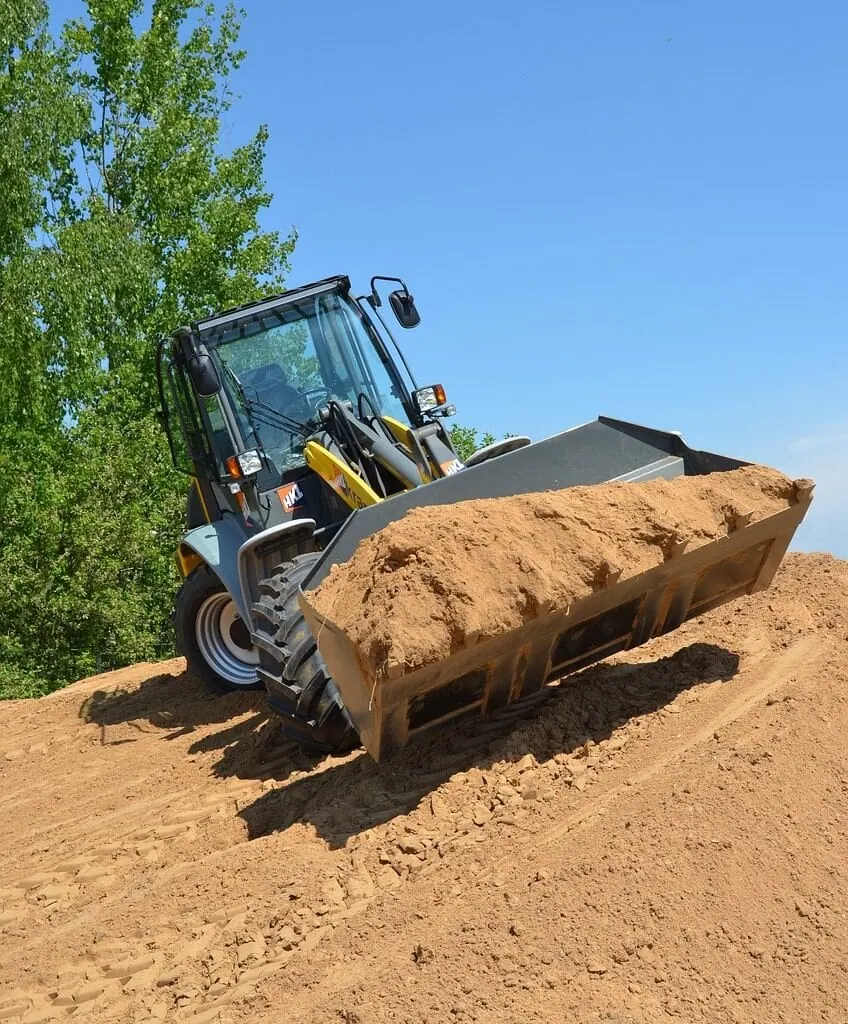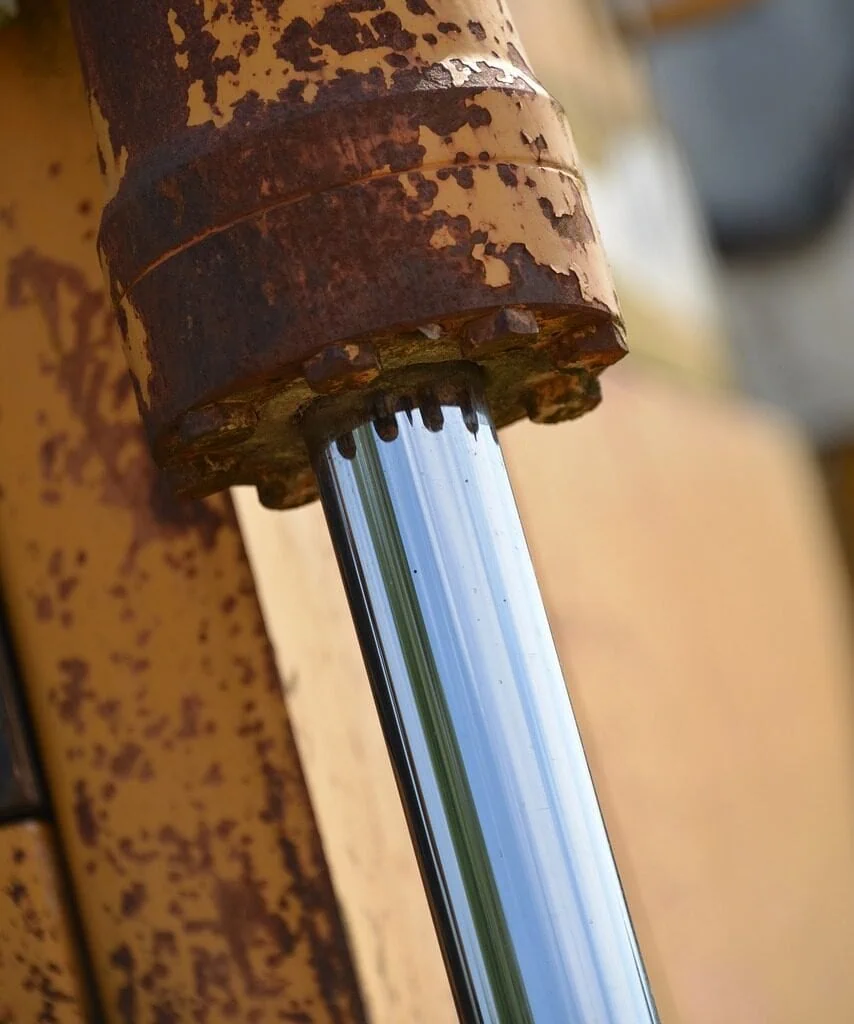As the construction industry increasingly recognizes its impact on the environment, the demand for innovative technologies and sustainable practices is reaching new heights. Among the key players in this evolution are excavators, which are essential machines that are now being transformed by green technology. This article explores the latest trends in excavator technology that are shaping the future of sustainable construction, emphasizing how these innovations not only improve efficiency but also contribute to environmental conservation.
Tabla de contenido
PalancaThe Shift Towards Sustainability in Construction
You might be wondering why sustainability is such a hot topic in construction today. The construction sector accounts for a significant portion of global greenhouse gas emissions, and as a result, there’s immense pressure to reduce the carbon footprint of construction activities. According to recent reports, construction is responsible for approximately 39% of global carbon emissions—both operational and embodied. By adopting sustainable practices and technologies, you can contribute to a greener future and simultaneously benefit your operations.
The concept of sustainable construction revolves around minimizing the environmental impact of buildings and infrastructure while maximizing efficiency and resource use. This notion is gaining traction as governments, industries, and consumers alike demand more eco-friendly practices.
In response to these demands, excavator manufacturers are innovating to produce machines that align with sustainability goals. This shift is not only about compliance with regulations but also about creating a competitive advantage in an increasingly eco-conscious market.
Advancements in Electric and Hybrid Excavators
One of the most notable trends in excavator technology is the shift toward electric and hybrid models. These machines are designed to minimize emissions and reduce noise pollution, making them ideal for urban areas or construction sites near sensitive environments. When you choose an electric or hybrid excavator, you’re not just opting for cleaner technology; you’re also embracing potential cost savings due to lower fuel and maintenance expenses.
- Benefits of Electric Excavators
Electric excavators are gaining popularity due to their efficiency and eco-friendliness. You’ll find that they are especially beneficial in areas where diesel exhaust regulations are strict. With zero emissions during operation, electric models align perfectly with the goals of sustainable construction.
A recent report from the International Energy Agency (IEA) highlighted the growing trend of electric construction equipment, predicting that these machines could account for a significant share of the market by 2030. Electric excavators can reduce a construction site’s carbon footprint by up to 90% in comparison to traditional diesel-powered models.
Additionally, they offer quieter operations, which can be a significant advantage in projects located near residential areas. City planners and contractors are increasingly recognizing that reducing noise pollution is as important as cutting emissions. The integration of electric machinery can help you meet these community standards while enhancing your project’s sustainability profile.
- The Rise of Hybrid Technology
Hybrid excavators combine traditional diesel engines with electric power, providing maximum flexibility. These models can operate using less fuel, which not only reduces emissions but also enhances productivity. If you’re considering a hybrid excavator, you should look for features such as regenerative braking, which recaptures energy and enhances fuel efficiency. This dual-power capability can significantly extend the range and performance of your machinery on site.

Integration of Smart Technology in Excavators
You may have noticed how technology has evolved in recent years, and the construction industry is no exception. The integration of smart technology into excavators is transforming how you operate machinery. Features like GPS tracking, machine telematics, and automated systems are becoming commonplace, allowing for greater precision and efficiency in your projects.
- GPS and Machine Control Systems
With GPS technology and advanced machine control systems, you can achieve unrivaled accuracy in excavation tasks. By using 3D modeling and site plans, these systems enable you to control the excavation depth and angle with precision. This minimizes waste and ensures that you’re only moving the earth that needs to be moved, ultimately promoting efficient resource management.
Incorporating machine control technology can reduce excavation time by up to 30%, thereby improving overall productivity. This not only enhances project timelines but also reduces fuel consumption and emissions, aligning with sustainability goals.
- Telemetry and Data Analytics
You can also take advantage of telemetry systems that monitor machine performance in real time. This data allows you to track fuel consumption, engine performance, and even maintenance needs. By leveraging this information, you can make informed decisions that enhance productivity while reducing unnecessary costs.
Recent advancements in data analytics enable you to monitor multiple machines simultaneously, providing insights into overall fleet efficiency. With predictive maintenance data, you can proactively address issues before they result in unplanned downtime. This maximizes the lifecycle of your equipment and contributes to sustainable practices by optimizing resource usage and reducing waste.
Sustainable Materials and Recycling Practices
As you explore excavator technology, keep in mind that sustainability goes beyond the machines themselves. It also encompasses the materials you use and how you manage waste on construction sites. Innovative attachments and tools are making it easier to incorporate recycling practices into your projects.
- Innovative Attachments for Recycling
New attachments enable excavators to handle recyclable materials more effectively. For instance, crushing and sorting attachments can process concrete and asphalt on-site, reducing the need for transporting waste to external facilities. This not only cuts down on transportation emissions but also allows you to repurpose materials directly, supporting a circular economy.
For example, some manufacturers have developed specialized buckets for sorting mixed waste on-site, making it easier to separate recyclable materials from hazardous waste. This capability is essential for adhering to regulations aimed at reducing landfill use and promoting recycling.
- Emphasis on Sustainable Materials
The push for sustainability also extends to the materials you select for construction. Many manufacturers are now offering eco-friendly alternative materials, such as recycled aggregates and bio-based products. By using these sustainable materials, you’re contributing to a project that reduces environmental impact while maintaining high-quality standards.
You can also consider utilizing locally sourced materials to reduce transportation emissions and support local economies. This not only benefits the environment but can also lessen costs and project timelines.
Remote Operation and Automation in Excavators
If you’re looking for ways to increase safety and efficiency on your construction sites, consider the growing trend of remote operation and automation in excavators. These technologies not only reduce the need for operators to be physically present in potentially hazardous situations but also streamline workflow.
- Benefits of Remote Control
Remote-controlled excavators allow you to operate machinery from a safe distance. This is especially helpful in challenging environments or when dealing with hazardous materials. With the ability to control the excavator remotely, you can enhance safety while maintaining precise control over your operations.
Recent developments in wireless technology have made remote operations more reliable and user-friendly. You can monitor various parameters—such as fuel levels, engine performance, and even track equipment location—directly from your device, giving you more control over your operations without jeopardizing safety.
- Fully Automated Systems
Although fully automated excavators are still emerging, advancements in artificial intelligence and robotics are paving the way for their adoption. These machines can perform simple tasks without human intervention, improving efficiency and allowing your team to focus on more complex challenges.
For example, construction giants like Komatsu and Caterpillar are testing fully autonomous excavators that can execute specific tasks through programmed commands, such as digging or grading. This autonomous capability not only enhances productivity but also minimizes human error.

The Future of Excavator Technology
The future of excavator technology looks promising, with ongoing advancements in electric, hybrid, smart, and automated systems. As the construction industry continues to embrace sustainable practices, you can expect further innovations that enhance efficiency and minimize environmental impact.
- Regulatory Pressures and Incentives
Governments around the world are implementing stricter emissions standards, providing incentives for using green technology. You’ll likely see continued support for transitioning to electric and hybrid machinery, including tax incentives and grants. Staying ahead of these regulations can position your company as a leader in sustainable construction while ensuring compliance and avoiding potential penalties.
- Evolving Market Demands
As clients increasingly prioritize sustainability, having a fleet of modern excavators that align with green initiatives can be a significant selling point. This market demand will drive manufacturers to continue innovating, leading to more fuel-efficient, eco-friendly, and technologically advanced machines.
- Collaboration for Sustainability
Collaboration between different stakeholders—contractors, manufacturers, and policymakers—will be vital in driving sustainable construction practices. Innovation often comes from partnerships that drive research and development in eco-friendly technologies, helping to spread best practices throughout the industry.
Conclusion: Embracing the Future of Excavation
The latest technology trends in excavators reflect a broader movement toward sustainability within the construction industry. By incorporating electric and hybrid machinery, leveraging smart technology, promoting recycling practices, and exploring automation, you’ll be positioning your operations at the forefront of a greener future.
As the construction landscape evolves, embracing these trends will ensure that you remain competitive while contributing positively to the environment. By making informed decisions today, you’ll be paving the way for a cleaner, more sustainable tomorrow in the construction industry.
As a mature excavator manufacturer, HIXEN will also actively adapt to sustainable and intelligent development and strive to provide you with the most cost-effective excavator.
